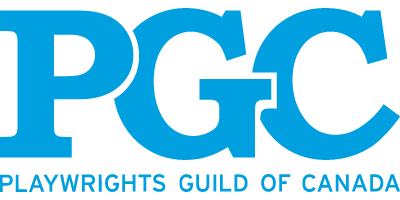“Ask Not What PGC Can Do for You…” (2006)
Years ago, when PGC membership rates were raised to $155 (a rate that hasn’t changed since 2006) members wanted to know what “services” they could use to justify convincing new playwrights to join PGC.
What is PGC doing for you?
For just a moment let’s forget about the fact that PGC produces an online member’s directory; administers readings; negotiates professional and amateur royalties; offers an opportunity to network with 700+ professional playwrights (many of whom are also artistic directors) and makes every one of your plays available to a global audience through the Copyscript program, and an increasingly more sophisticated website. And let’s leave aside the argument that if you think your play might be worthy of future productions, or you’d like to see it live or in a few libraries, that the Copyscript program alone should be worth more than the annual price of admission.
What PGC is doing for you – whether you’re a member or not – is offering a national voice to lobby for playwrights’ rights on issues like copyright and fair use.
What PGC is doing for you is making sure that when the Canada Council and regional arts councils gives out money they don’t forget to include money for playwrights. If you’ve ever successfully applied for a creation grant from the Canada Council you can thank PGC for that money, because without the Guild to lobby for it, direct funding for play creation would be the responsibility of theatres. PGC also fought for residency programs and the grants theatres receive to give out for play creation.
What PGC is doing for you is lobbying for programs like CanCopy and Public Lending Right and making sure that when those programs are created and they decide how to divvy up the funds, playwrights get their fair share. If you’ve ever cashed a cheque for CanCopy or PLR, that’s because PGC fought for you.
What PGC is doing for you is making sure that when governments introduce bills about “status of the artist” the politicians remember that playwrights are artists too.
What PGC is doing for you is fighting to protect your copyright and the integrity of your work both within Canada and abroad.
If you’ve ever been produced at a theatre that paid you a ten percent royalty without blinking — that’s because of PGC playwrights who sat on contracts committees for years and fought for a standard ten percent model that is followed by the majority of Canadian theatres like it’s a commandment. And even if you’ve been “screwed” with a lower royalty — chances are that it would have been a lot lower without that ten percent minimum in place. PGC also fought to enforce the principle that only playwrights can change the words in a script and that playwrights are welcome at rehearsals and have a variety of other rights screenwriters would kill for. If you question the “value” of a PGC contract, walk into your next negotiating meeting with a general manager and inform her that you don’t believe in the standard PGC agreement so you’re hiring a lawyer to draft a new contract. From scratch. See if your royalty cheque covers the cost of drafting that contract.
What PGC is doing for you is helping to create an atmosphere where foreign artistic directors don’t throw out envelopes covered with Canadian postage stamps. If you’ve ever had a sniff from a foreign market, that just might have been because of the time, money and effort PGC has invested in promoting Canadian plays and playwrights within Canada and around the world.
What PGC is doing for you is making sure Canadian theatres produce Canadian plays.
Have you ever been produced at a Canadian theatre? Then unless you started your career in the 1970s and the age of LIP grants, you can probably thank PGC for that too — for keeping the heat on Canada Council and governments at all levels to ensure that incentives exist to fund and support Canadian work. You don’t have to look back very far in Canadian theatre history to see an age when Canadian work was relegated to second stages, co-ops and amateur drama festivals. In fact, you only have to look back almost 40 years ago — when PGC’s predecessor, the Playwrights Union of Canada, was founded.
The fact is that if you’ve ever had a play professionally produced in this country, you’ve already benefited from the work done by your fellow playwrights at PGC.
If you’re a Canadian playwright, joining PGC shouldn’t have to be about “what can PGC do for me now” it should be about acknowledging what PGC has already done for you and sharing in the responsibility of putting Canadian playwrights at the centre of Canadian theatre.
What is Playwrights Guild of Canada doing for me? Supporting Canadian playwrights and playwriting and fighting to make sure that when politicians, courts, tribunals, granting bodies and artistic directors are making decisions that affect writers and artists in this country, someone is making sure that playwrights aren’t forgotten.
The “services” are just a bonus.

